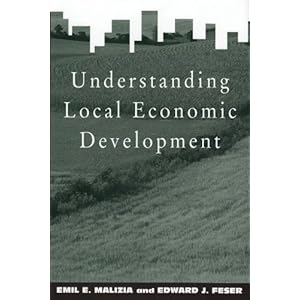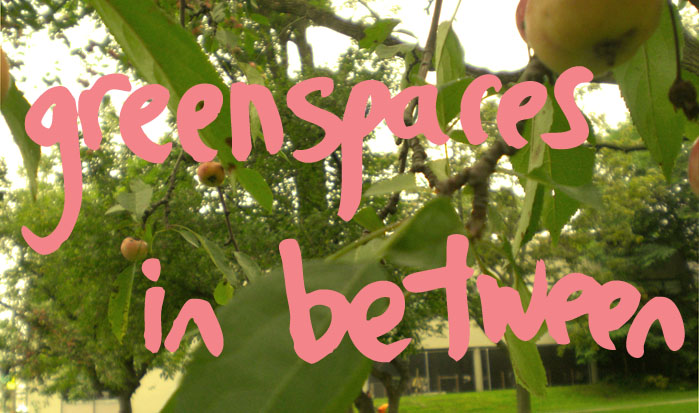These are what can make a city an attractive place to live.
Art used to to revitalize a declining city. Such is the case with...
Hamilton!
Loved Hamilton when I was there. I had a real sense of it being on the verge of change, and seeing that many grassroots movements were happening.
Many of the people there were
"Art is the new steel" - cultural industry
Artistic dividend - the contribution of art to occupational life
James Street North.
Started grassroots - the goverment has caught on? Integrated it into the plans.
Policy:
- Hamilton’s Economic Development Strategy 2010-2015
- Love Your City Project Hamilton’s Cultural Plan 2013
Challenges:
- Gentrification
- Dependency on public funding
- Focus on downtown, but not the outer areas.
Whitehorse and the North
Cultural industries/art industries not necessarily that useful in every case.
But in the north, Whitehorse has growing cultural industries.
Monday, December 16, 2013
Theories of Local Economic Development
Is there some middle ground between these the definitions of LOCAL ECONOMIC DEVELOPMENT ? Definitely. Different theories of local economic development may may define LED at or between these two extremes.
Theories of LED
Neoclassical theory sees development as increasing economic growth per capita. Straight up, money matters. Adam Smith and the invisible hand, David Ricardo and comparative advantage....
Policies of free trade and market deregulation exemplify the influence of this theory.
EXAMPLE: Resistance of governments, including the Waterloo Regional Municipality, to implement living wage or beef up minimum wage regulations, for fear that too much regulation will detract big box stores like Walmart or Target.
Export/economic base sees development as increasing output, income and employment. It's a little more holisitic than neoclassical theory, but not by much. It focuses on the importance of trade. The goal is for a region to export more than it imports.
Policies of the export/economic base concept include: industrial recruitment (running after industries), infrastructure building, and import substitution.
EXAMPLE: Smokestack chasing - Sudbury
Growth pole is another Keynesian-inspired concept. It says that some industries can be particularly helpful for growth - a propulsive industry that diffuses wealth to the rest of economy. Evidence of this phenomenon is evidence of development.
Policies: choosing a winner and investing.
EXAMPLE: Blackberry for Waterloo.... used to be.
Product/profit cycle: This came out the political economy of the 70s. Main thinkers here were Kondratiev (Capitalism happens in 50-60 year cycles! Observe it in prices, interest rates, and economic variables, dudes!) and Joseph Schumpeter (innovation and technology change are where it's at! First entrepreneurs and then large firms). Economic development based on ability to produce new products.
Policies: Mixed
Flexible specialization
Close-knit ties between different kinds of firms to specialize in a cluster. Unique cultural identity is important
EXAMPLE: Kitchener trying to create a culture around their specialization - with culture and music. Contrast with Silicon Valley
Theories of LED
Neoclassical theory sees development as increasing economic growth per capita. Straight up, money matters. Adam Smith and the invisible hand, David Ricardo and comparative advantage....
Policies of free trade and market deregulation exemplify the influence of this theory.
EXAMPLE: Resistance of governments, including the Waterloo Regional Municipality, to implement living wage or beef up minimum wage regulations, for fear that too much regulation will detract big box stores like Walmart or Target.
Export/economic base sees development as increasing output, income and employment. It's a little more holisitic than neoclassical theory, but not by much. It focuses on the importance of trade. The goal is for a region to export more than it imports.
Policies of the export/economic base concept include: industrial recruitment (running after industries), infrastructure building, and import substitution.
EXAMPLE: Smokestack chasing - Sudbury
Growth pole is another Keynesian-inspired concept. It says that some industries can be particularly helpful for growth - a propulsive industry that diffuses wealth to the rest of economy. Evidence of this phenomenon is evidence of development.
Policies: choosing a winner and investing.
EXAMPLE: Blackberry for Waterloo.... used to be.
Product/profit cycle: This came out the political economy of the 70s. Main thinkers here were Kondratiev (Capitalism happens in 50-60 year cycles! Observe it in prices, interest rates, and economic variables, dudes!) and Joseph Schumpeter (innovation and technology change are where it's at! First entrepreneurs and then large firms). Economic development based on ability to produce new products.
Policies: Mixed
Flexible specialization
Close-knit ties between different kinds of firms to specialize in a cluster. Unique cultural identity is important
EXAMPLE: Kitchener trying to create a culture around their specialization - with culture and music. Contrast with Silicon Valley
Definitions - what does it mean to develop?
As I've explained before, I love cities/urban areas, and am interested in many facets of them - their physical environment, economic stability, and the social wellbeing of its people.
"Local Economic Development" is getting to be a pretty buzzy idea for many academics and in the practice-isms of government and economic directors.
What IS local economic development?
There are MULTIPLE definitions, that emphasize different aspects. Perhaps this lends itself to the fact that local economic development is very multidisciplinary - economics, geography, sociology, political sciece...etc
Definition #1: Social justice development
Defintion #2: Wealth development
 •“Economic development: the ongoing process of creating wealth in which producers deploy scarce human, financial, capital, physical and natural resources to produce goods and services that consumers want and are willing to pay for.
•“Economic development: the ongoing process of creating wealth in which producers deploy scarce human, financial, capital, physical and natural resources to produce goods and services that consumers want and are willing to pay for.
"Local Economic Development" is getting to be a pretty buzzy idea for many academics and in the practice-isms of government and economic directors.
What IS local economic development?
 |
| Image from the World Bank's website |
There are MULTIPLE definitions, that emphasize different aspects. Perhaps this lends itself to the fact that local economic development is very multidisciplinary - economics, geography, sociology, political sciece...etc
Definition #1: Social justice development
“Development means making a better life for everyone. In the present context of a highly uneven world, a better life for most people means, essentially, meeting basic needs: sufficient food to maintain good health; a safe, healthy place in which to live; affordable services available to everyone; and being treated with dignity and respect.
This definition understands development needing to provide more people beyond their basic needs.
Beyond meeting these needs, basic to human survival, the course taken by development is subject to the material and cultural visions of different societies. The methods and purposes of development are subject to popular, democratic decision making.” - Peet and Hartwick (2009:1)
Defintion #2: Wealth development
 •“Economic development: the ongoing process of creating wealth in which producers deploy scarce human, financial, capital, physical and natural resources to produce goods and services that consumers want and are willing to pay for.
•“Economic development: the ongoing process of creating wealth in which producers deploy scarce human, financial, capital, physical and natural resources to produce goods and services that consumers want and are willing to pay for.
•“Process of national wealth creation for the benefit of local consumers and producers [through] either the expansion of job opportunities and tax base or the efficient redeployment of local resources ” – Malizia (1994: 84)
Is there some middle ground between these two definitions? Definitely. See my next post!
Is there some middle ground between these two definitions? Definitely. See my next post!
Monday, December 9, 2013
Environmental Justice
For my thesis project, I am doing a lot of reading about environmental justice. Interesting stuff! I feel as though this is what I've been searching for my whole university career, and I am just coming upon it now at the end. It's all about what I'm interested in: the environment, but not just the environment. How culture, people, and justice fit into all of it!
We sell these in the ES Coffeeshop!
I am co-managing the ES Coffeeshop this term. And we sell these delicious jars of goodness! Awesome on my toast.
Night/Shift: (Inner)national Parks of Kitchener
Night/Shift was a great event. As one of my co-explorers through downtown Kitchener said that night, it was like Nuit Blanche in Toronto except smaller, warmer, friendlier and sans large numbers of annoying drunk and high people. (His sentiments, not necessarily mine! I've only been the Nuit Blanche once. I thought people were nice)
Mostly I liked the chance to walk around downtown Kitchener with friends, while learning about (one side) the city's arts & culture in a way that can only be done this way. Reading about it, hearing a lecture about it, etc. is not the same kind of learning.
Favourite exhibits?
Hands down favourite thing was the (Inner)national Parks of Kitchener installation. I thought it was hilarious and clever. I'd love to see something like this be installed during the day to get more people seeing it.
http://megharder.carbonmade.com/
A big moment for me was feeling part of city, rather than a student. I have lived in this region coming onto 4 and a half years. Despite that the fact that I've tried settle down outside the student bubble, my life and activities still revolve heavily around the University. I'm excited to become a real person when I graduate. (an unemployed person? Perhaps.)
It was cool to recognize people from my Faculty, from different events, and from just walking around the street. I understand that this is sort of a select group of people who come out to all these events....so it's not that surprising that I should recognize them. But the fact that this is beginning to happen indicates to me that there is a bit of a community here. It may be a select group out of the general population, but perhaps that's what a community is? I'm not sure. That's a question for us to ponder forever (Or perhaps for my undergrad thesis. One or the other)
Mostly I liked the chance to walk around downtown Kitchener with friends, while learning about (one side) the city's arts & culture in a way that can only be done this way. Reading about it, hearing a lecture about it, etc. is not the same kind of learning.
Favourite exhibits?
Hands down favourite thing was the (Inner)national Parks of Kitchener installation. I thought it was hilarious and clever. I'd love to see something like this be installed during the day to get more people seeing it.
http://megharder.carbonmade.com/
A big moment for me was feeling part of city, rather than a student. I have lived in this region coming onto 4 and a half years. Despite that the fact that I've tried settle down outside the student bubble, my life and activities still revolve heavily around the University. I'm excited to become a real person when I graduate. (an unemployed person? Perhaps.)
It was cool to recognize people from my Faculty, from different events, and from just walking around the street. I understand that this is sort of a select group of people who come out to all these events....so it's not that surprising that I should recognize them. But the fact that this is beginning to happen indicates to me that there is a bit of a community here. It may be a select group out of the general population, but perhaps that's what a community is? I'm not sure. That's a question for us to ponder forever (Or perhaps for my undergrad thesis. One or the other)
Subscribe to:
Posts (Atom)



